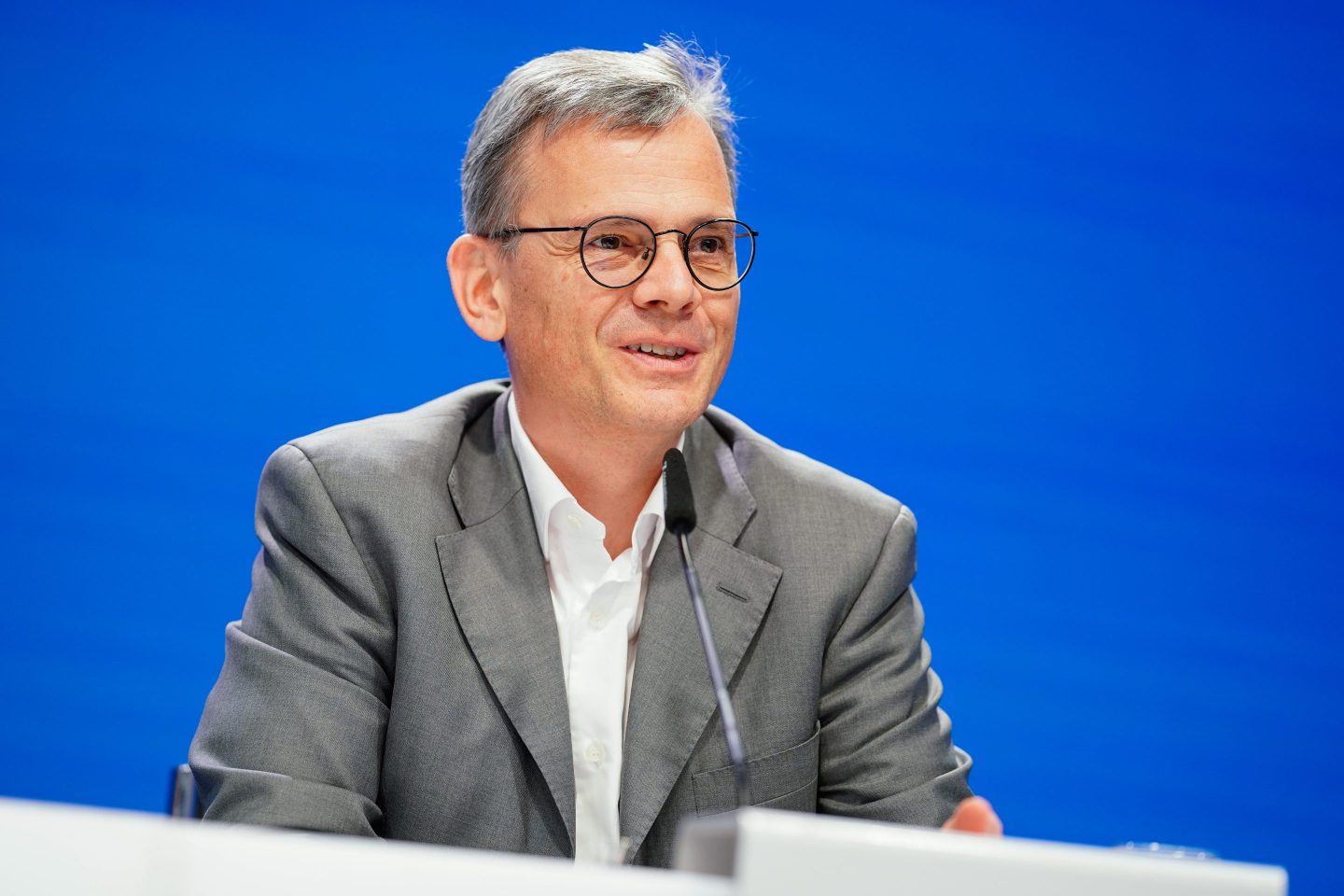Good morning. Fortune senior reporter Will Daniel here, subbing in for Sheryl Estrada.
The AI arms race is heating up, and that may be bad news for many smaller companies. In a recent interview with Fortune, Dominik Asam, CFO of the German software giant SAP, described how larger companies’ data advantage could produce a haves and have-nots landscape.
“In some segments, it’s a little bit of a winner takes it all game,” he said. “You have a certain head start; you then can develop faster; you can invest more than the smaller competitors.”
Much of larger firms’ edge comes down to their ability to train AI models for real-world tasks, according to Asam.
“Where it’s a winner takes all game is that, normally, if you want to train models, you need massive [amounts of] data, and it’s expensive. So it’s a game where the guy who has the best data has an advantage,” he explained, adding that “on the training side, it’s clearly a winner takes it all game. The big guys can just run more massive models.”
Asam also described how larger firms can more readily enable integration between different lines of business and invest more in security when rolling out new AI services. When it comes to investing in talent, Fortune 500 companies’ size and spending power gives them another advantage. That’s critical amid what Tesla CEO Elon Musk calls the “craziest talent war” he’s ever seen.
Beyond mega-cap tech CFOs, Wall Street is also predicting a winner-take-all environment in the AI arms race, with Fortune 500 giants spending billions on the technology, lured by its productivity-enhancing capabilities.
Rick Rieder, global chief investment officer of fixed income and head of the global allocation team at BlackRock, argues that large companies with the most—and best—data now have what the investing world calls a “moat.” (Berkshire Hathaway’s Warren Buffett has long used the metaphor of a moat surrounding a castle to describe sustainable competitive advantages.)
“You see the moat expanding for the companies that are in and around the data, or can help produce the data. So I think that is hugely significant,” the veteran investor, who oversees roughly $2.4 trillion in assets and is known as BlackRock’s bond guru, told Fortune in a recent interview. “The companies that have the data or help you process the data are going to be the ones that win.”
So what should smaller AI-focused companies do? Double down and spend more to compete with data-rich industry leaders, or find a new path?
Asam did note that larger companies likely won’t have every advantage in the AI arms race, particularly when it comes to foundation models—the large-scale, general large language models that are eventually trained for more specific use cases. The CFO described how SAP has tested dozens of foundation models from smaller companies that showed promising results.
“It’s really surprising how quickly new entrants are coming in and finding some good solutions there,” he said.
Thanks for reading, catch you next time.
Will Daniel
will.daniel@fortune.com
Leaderboard
Jim McKinney was named CFO at SiriusPoint Ltd. (NYSE: SPNT), a global specialty insurer and reinsurer, effective June 3. McKinney was most recently the EVP and CFO of Kemper Corporation. Before that, he was EVP and CFO for Banc of California.
Butch Oorlog was promoted to CFO at Raymond James Financial, Inc. (NYSE: RJF). Oorlog, currently chief accounting officer, will succeed Paul Shoukry, who has been named the firm’s CEO successor.
Big Deal
Generative AI can boost workplace productivity by assisting U.S. workers to save millions of hours a week in repetitive tasks, according to a new report by the learning company Pearson. Using its AI-powered workforce planning modeling, Pearson identified the top 10 job tasks in five countries (Australia, Brazil, India, the U.S. and U.K.) with the most time reclaimed by using generative AI.
For example, in the U.S., the top three work tasks with the most hours saved by Gen AI by 2026 are:
—Maintaining health or medical records (3,568,000 hrs per week)
—Maintaining current knowledge in an area of expertise (3,132,000 hrs)
—Developing educational programs, plans, or procedures (2,946,000 hrs)
Going deeper
“I’ve worked with thousands of emerging Gen Z leaders. There’s a fundamental reset in what this generation wants career-wise,” is a new Fortune opinion piece by Ian Sandler, COO of global software investor Insight Partners.
Sandler writes: “Gen Z is entering the workforce for the first time and bringing a unique perspective on careers and how they define success. There’s a reset in what they want to get out of work and what they look for in their careers. Although salary has traditionally been the most important factor when deciding on a job, Gen Z values it less than every other generation and prioritizes joining an organization that aligns with their values, where they can find community, and that articulates how early-career growth will be supported.”
He’s also the founder of Riley’s Way, a foundation that provides leadership training and funding to young founders of social impact organizations.
Overheard
“When the paradigm shifts, do you have something to contribute? Because there is no God-given right to exist if you don’t have anything relevant.”
Microsoft CEO Satya Nadella told Fortune's Jeremy Kahn in an interview.













